Marc Oriol
What About Emotions? Guiding Fine-Grained Emotion Extraction from Mobile App Reviews
May 29, 2025Abstract:Opinion mining plays a vital role in analysing user feedback and extracting insights from textual data. While most research focuses on sentiment polarity (e.g., positive, negative, neutral), fine-grained emotion classification in app reviews remains underexplored. This paper addresses this gap by identifying and addressing the challenges and limitations in fine-grained emotion analysis in the context of app reviews. Our study adapts Plutchik's emotion taxonomy to app reviews by developing a structured annotation framework and dataset. Through an iterative human annotation process, we define clear annotation guidelines and document key challenges in emotion classification. Additionally, we evaluate the feasibility of automating emotion annotation using large language models, assessing their cost-effectiveness and agreement with human-labelled data. Our findings reveal that while large language models significantly reduce manual effort and maintain substantial agreement with human annotators, full automation remains challenging due to the complexity of emotional interpretation. This work contributes to opinion mining by providing structured guidelines, an annotated dataset, and insights for developing automated pipelines to capture the complexity of emotions in app reviews.
Software Engineering for AI-Based Systems: A Survey
May 05, 2021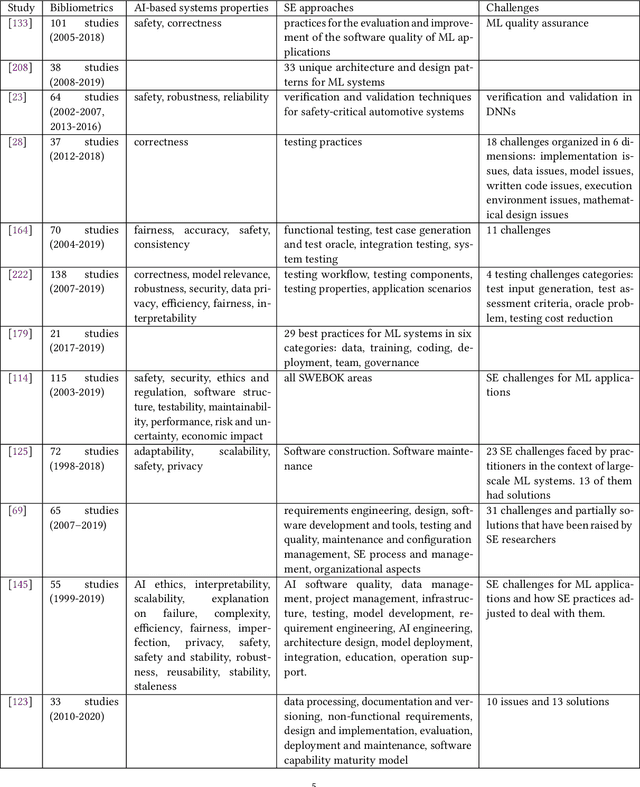
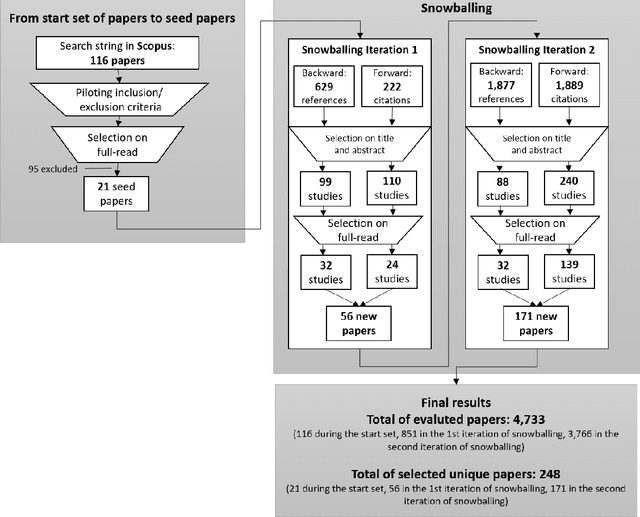
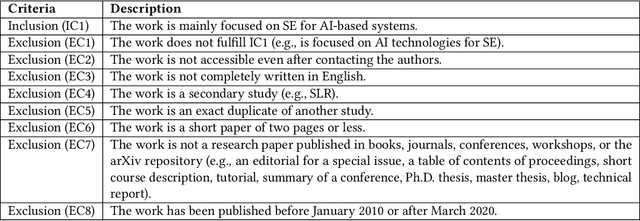
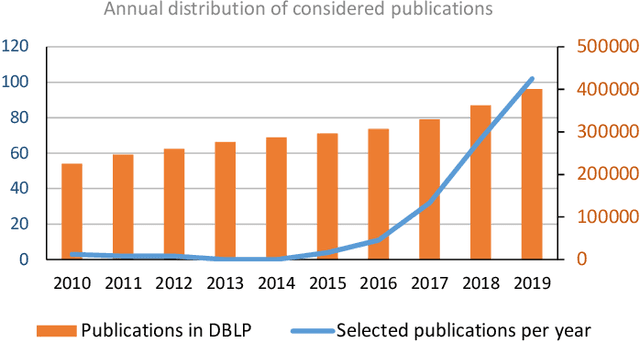
Abstract:AI-based systems are software systems with functionalities enabled by at least one AI component (e.g., for image- and speech-recognition, and autonomous driving). AI-based systems are becoming pervasive in society due to advances in AI. However, there is limited synthesized knowledge on Software Engineering (SE) approaches for building, operating, and maintaining AI-based systems. To collect and analyze state-of-the-art knowledge about SE for AI-based systems, we conducted a systematic mapping study. We considered 248 studies published between January 2010 and March 2020. SE for AI-based systems is an emerging research area, where more than 2/3 of the studies have been published since 2018. The most studied properties of AI-based systems are dependability and safety. We identified multiple SE approaches for AI-based systems, which we classified according to the SWEBOK areas. Studies related to software testing and software quality are very prevalent, while areas like software maintenance seem neglected. Data-related issues are the most recurrent challenges. Our results are valuable for: researchers, to quickly understand the state of the art and learn which topics need more research; practitioners, to learn about the approaches and challenges that SE entails for AI-based systems; and, educators, to bridge the gap among SE and AI in their curricula.
Research Directions for Developing and Operating Artificial Intelligence Models in Trustworthy Autonomous Systems
Mar 11, 2020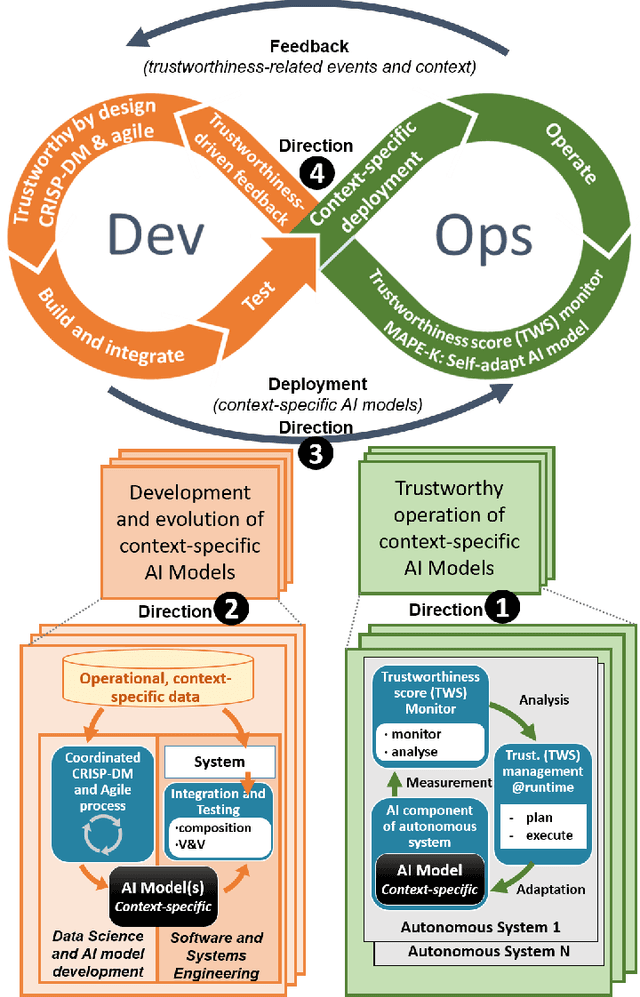
Abstract:Context: Autonomous Systems (ASs) are becoming increasingly pervasive in today's society. One reason lies in the emergence of sophisticated Artificial Intelligence (AI) solutions that boost the ability of ASs to self-adapt in increasingly complex and dynamic environments. Companies dealing with AI models in ASs face several problems, such as users' lack of trust in adverse or unknown conditions, and gaps between systems engineering and AI model development and evolution in a continuously changing operational environment. Objective: This vision paper aims to close the gap between the development and operation of trustworthy AI-based ASs by defining a process that coordinates both activities. Method: We synthesize the main challenges of AI-based ASs in industrial settings. To overcome such challenges, we propose a novel, holistic DevOps approach and reflect on the research efforts required to put it into practice. Results: The approach sets up five critical research directions: (a) a trustworthiness score to monitor operational AI-based ASs and identify self-adaptation needs in critical situations; (b) an integrated agile process for the development and continuous evolution of AI models; (c) an infrastructure for gathering key feedback required to address the trustworthiness of AI models at operation time; (d) continuous and seamless deployment of different context-specific instances of AI models in a distributed setting of ASs; and (e) a holistic and effective DevOps-based lifecycle for AI-based ASs. Conclusions: An approach supporting the continuous delivery of evolving AI models and their operation in ASs under adverse conditions would support companies in increasing users' trust in their products.
 Add to Chrome
Add to Chrome Add to Firefox
Add to Firefox Add to Edge
Add to Edge